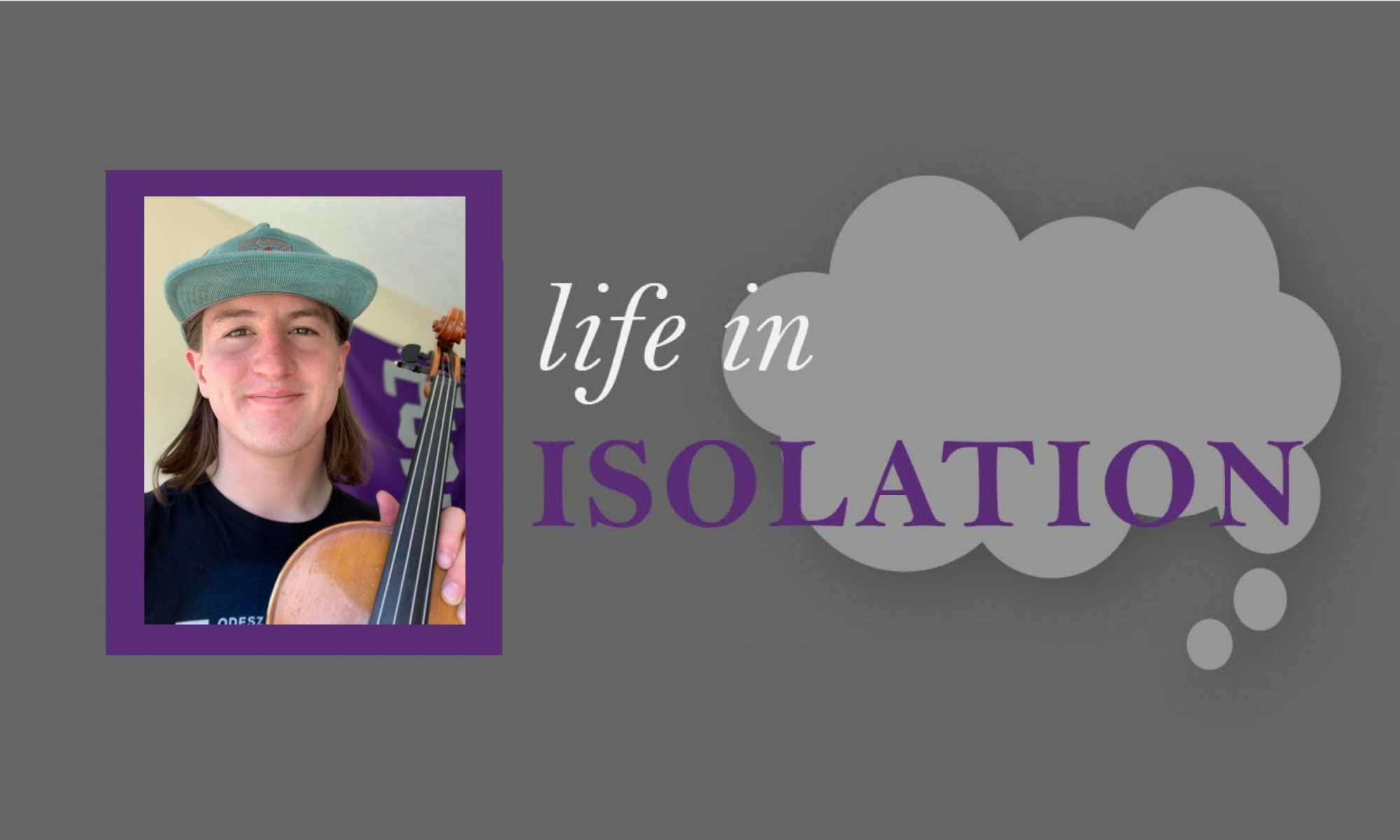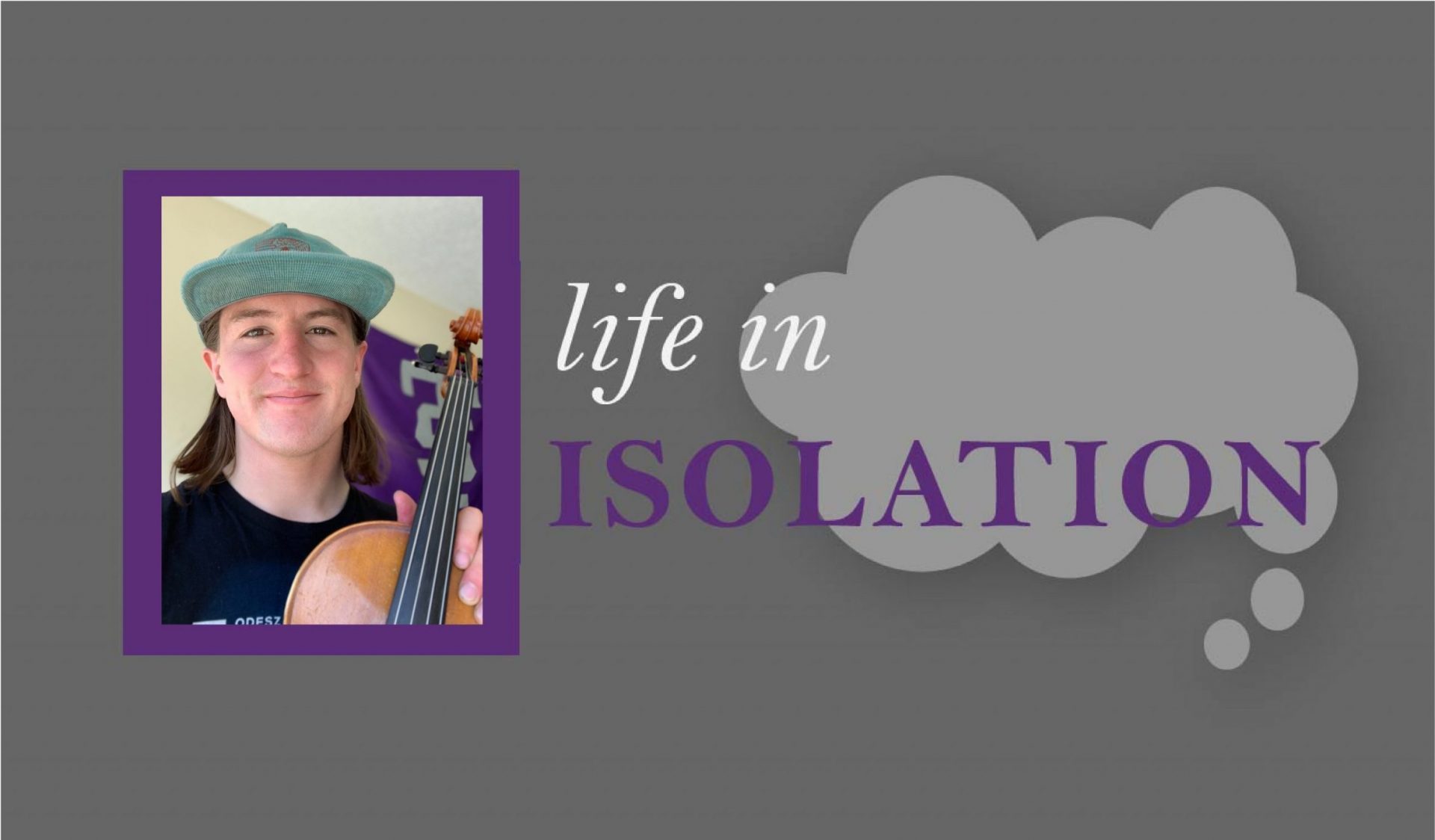This Life in Isolation piece is written by St. Thomas student Spencer Polk, a senior from Verona, Wisconsin. He is a geography, German and justice and peace studies major with a sustainability minor. This piece was originally written for COJO 372, Environmental Communication.
I’ve been comforted by my viola recently and since the orchestra has been disbanded, I’ve been finding new ways to share it and use it as a tool of expression. So tonight, I thought I would bring it to the river to play.
I had never really played it outside or in nature before. It has always been confined to practice rooms and concert halls.
I carried it around my shoulder from Flynn Hall, past the Soldiers and Sailors Monument, and southward along the wooded, winding and sinuous paths. I wanted to get away from people, so I went pretty far south along the east bank.
There were couples perched every 30 meters or so until after about 10 minutes, the sight of people dissipated, and I felt in solitude.
I came to a narrow, cozy ravine covered in golden leaves and trees, and walked down it toward the river until I reached the cozy caprock limestone ledge. I stepped down and sat in the throne of its mossy, cold cavern, held by the dip of the ravine, the sun setting in front of me.
I took out my viola and tuned for about 10 minutes, played a little quietly and then tuned some more, but it just didn’t feel right.
There was something purer to be experienced, to be heard.

I awakened to the sounds and smells of the woods: birds, the drip of the spring water in the cavern behind me, dogs barking in the distance, leaves rustling in the breeze, a campfire, the fresh smell of the damp earth and old fallen leaves – something so pure I had to put my viola away and just sit.
I thought it would be beautiful to play here, but what I found was music in its pure state, that which the vibrations of manufactured cultural instruments mimic.
The original state, the supreme beauty, the complete essence, yes … something complete and whole. Complete. Enough. I did not need to add anything. No G chords or C chords.
By sitting I was playing, I was harmonizing.
I am here, it says. Like the father opening his arms to the returning son. Welcome home. The forest smiling back, chuckling almost. Like a friend’s face you notice has been silently smiling at you for a long time only after you have snapped out of your zoned-out haze.
Sometimes to be in nature like this feels like a gift, and it is, but we treat it almost as a luxury, something to splurge on, when it is in fact our home, it is where we have always belonged. That is why it feels so good.
We are reminded of who we are, we are reminded of our humanity and where we came from, our beginnings as a species. No matter how distant we feel now or ever, we are never alone because we are a part of it all, the universe.
The fact that we feel connected at all is a miracle. Most of everything is empty space, and yet we are held together and not only that, we are alive.
The universe, one verse, one song, singing all together, from unus “one” and versus, “to turn, turn back, be turned; convert, transform, translate; be changed.”
All of us turning around and around on this rock, around the sun, held together for a moment as ourselves, but always a part of the whole, vibrating, singing together as one.
I stand up, sling my viola, made from trees like the ones around me, climb out of the ravine and head back toward St. Thomas with the sun behind me, as the trees in front of me glow orange.
Spencer Polk can be reached at polk6473@stthomas.edu.




